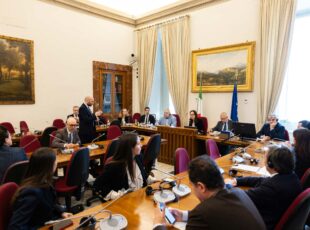Duma Passes Amnesty, Excludes Khodorkovsky
On Tuesday July 2, Russia’s lower house of Parliament approved an amnesty for several thousand of the entrepreneurs currently serving prison sentences for economic crimes.
Boris Titov, the business ombudsman, proposed the amnesty last year, shortly after his appointment to the role. At the time, it was reported that he had said the amnesty could be extended to Khodorkovsky whose release would be ‘good news’ for Russia’s investment climate. Titov later retracted his statement, saying Bloomberg had distorted his words, and that Khodorkovsky’s case would only be reviewed on its legal merits.
The amnesty proposals surfaced again in May 2013, when, during his annual meeting with representatives of Russian business, President Putin commented on the proposals once more, saying the project was not fully prepared and needed to be analysed further. Russia’s ruling party, United Russia, and the head of the criminal law committee, Pavel Krashennikov, had also voiced support for the amnesty. However, amidst questions of whether the amnesty would be applicable to Khodorkovsky, Russian MP and member of the economic policy committee, Viktor Zvagelsky, stated that it would be applied only to those prisoners serving their first jail term.
Indeed, the law now passed by the Duma excludes those with multiple convictions, meaning that the total released under the amnesty will be far lower than the 13,000 Titov originally envisioned and the clause appears to be designed to prevent the amnesty being applied to Khodorkovsky, or indeed to his business partner, Platon Lebedev, who yesterday marked the tenth anniversary of his arrest.



